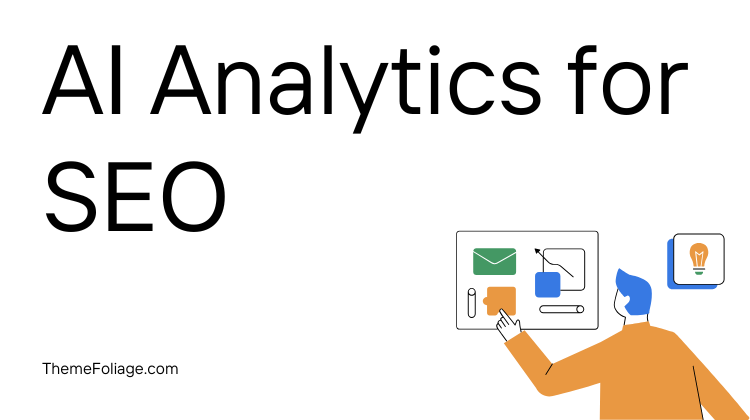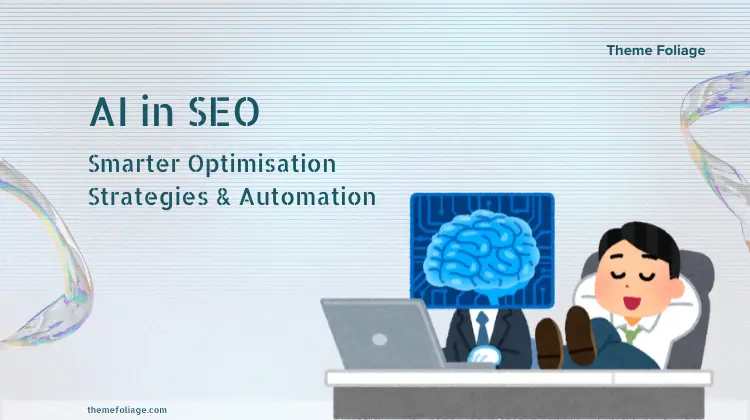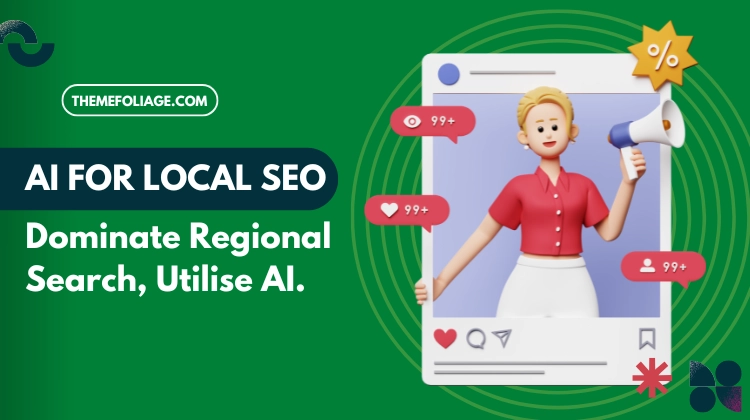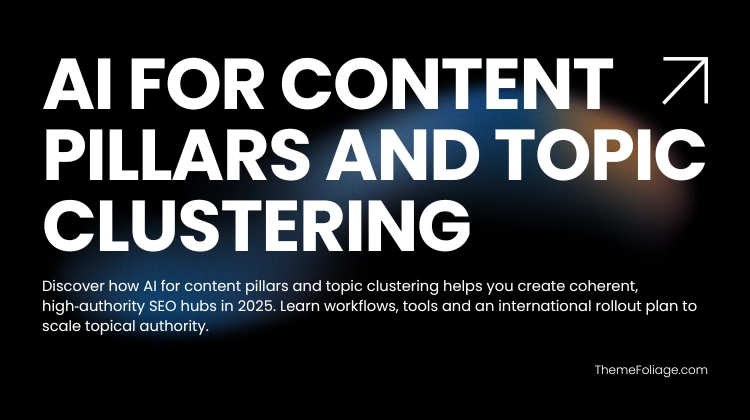SEO is evolving from manual guesswork to intelligent prediction. With the help of artificial intelligence (AI) and machine learning, digital marketers can now analyse vast amounts of data, uncover hidden opportunities, and make smarter, faster decisions. In 2025, mastering AI analytics for SEO isn’t just an advantage, it’s a necessity.
1. What is AI analytics for SEO?
AI analytics refers to the use of artificial intelligence and machine learning algorithms to analyse SEO data and generate insights automatically.
Unlike traditional analytics, AI tools can detect trends, patterns, and opportunities that human analysts might overlook.
- Automates keyword clustering and intent classification.
- Identifies ranking anomalies and predictive opportunities.
- Provides actionable insights for technical, content, and link optimisation.
2. Why AI analytics matters in modern SEO
Search algorithms are constantly changing, and the sheer volume of data from Search Console, Analytics, and third-party tools makes manual analysis inefficient.
AI bridges this gap by transforming raw data into digestible intelligence.
- Predict keyword opportunities before they trend.
- Monitor user behaviour shifts across devices and demographics.
- Automate SEO performance reporting in real time.
3. Key applications of AI in SEO analytics
AI technology can enhance nearly every SEO process. Here’s how:
- Keyword Research: Machine learning clusters related terms and identifies emerging topics.
- Content Optimisation: NLP (Natural Language Processing) analyses top-ranking pages to suggest structure, headings, and tone.
- Technical SEO: AI crawlers detect broken links, render-blocking scripts, and prioritise fixes.
- Performance Prediction: Predictive analytics estimates ranking potential based on historical performance.
4. Top AI analytics tools for SEO in 2025
Several platforms integrate AI directly into SEO workflows. The following are among the most popular and effective:
- SurferSEO: Content intelligence for on-page optimisation.
- MarketMuse: AI content planning and gap analysis.
- Clearscope: Semantic keyword recommendations based on top-ranking results.
- CanIRank: Predictive keyword and competition analysis.
- Semrush AI Insights: Automated anomaly detection and keyword clustering.
5. Predictive SEO: Forecasting trends before they happen
Predictive SEO is the practice of using AI to forecast traffic changes, keyword performance, and ranking shifts.
In 2025, predictive models are becoming central to campaign planning.
- Forecast seasonal keyword spikes.
- Detect early signs of ranking decline.
- Estimate traffic potential for new content.
By analysing patterns across thousands of data points, AI allows marketers to stay ahead rather than react.
6. AI-driven keyword clustering and intent mapping
AI can group similar keywords automatically based on semantic meaning and search intent. This is a major shift from manually sorting keyword lists.
- Build topic clusters for pillar page strategies.
- Map informational, navigational, and transactional intent.
- Identify missing cluster content to fill topical gaps.
7. Natural Language Processing (NLP) for content optimisation
NLP technology helps SEO professionals write better content by analysing how Google interprets topics and entities.
It ensures your content aligns with search intent while remaining natural and human-readable.
- Analyse entity relevance to improve topical authority.
- Identify missing keywords and contextual terms.
- Enhance readability and tone consistency.
8. Automating SEO reporting and dashboards
AI-based analytics tools automate time-consuming reporting tasks. This helps marketers focus on strategy instead of spreadsheets.
- Generate weekly and monthly reports automatically.
- Highlight unusual ranking changes or opportunities.
- Customise dashboards using Google Looker Studio or DataBox integrations.
9. Detecting anomalies in rankings and traffic
AI excels at identifying anomalies, sudden drops or spikes that signal algorithm updates, technical problems, or new competitor actions.
- Set automated alerts for ranking changes or crawl issues.
- Cross-check anomalies against Google update timelines.
10. AI and user behaviour analysis
AI analytics tools can interpret heatmaps, dwell time, and session recordings to understand how users engage with your site. These insights help improve UX and on-page conversion.
- Track scroll depth, bounce rates, and click behaviour.
- Identify friction points in user journeys.
- Optimise CTAs and navigation for better engagement.
11. Enhancing link-building with AI analytics
AI can streamline link-building research by identifying high-authority domains and relevant outreach opportunities.
- Use AI scoring to prioritise potential backlinks.
- Detect lost backlinks and outreach to recover them.
- Analyse anchor text diversity and link velocity trends.
12. Voice and visual search analytics
AI analytics can now interpret voice and image search data, helping brands adapt to new discovery methods.
- Analyse long-tail, conversational queries for voice search.
- Track performance of visual content like infographics and product photos.
13. Data privacy and ethical AI use
As AI collects and processes large amounts of user data, maintaining compliance with privacy regulations such as GDPR and CCPA is essential.
- Ensure AI tools handle anonymised data.
- Disclose data usage transparently in your privacy policy.
- Regularly review compliance across platforms.
14. Integrating AI analytics into your SEO workflow
Successful SEO teams combine human expertise with AI precision. The goal isn’t to replace analysts — it’s to empower them.
- Use AI for data collection and trend detection.
- Let human strategists handle interpretation and creative decisions.
- Continuously refine models based on campaign feedback.
15. Future of AI analytics in SEO
By 2025 and beyond, AI analytics will become even more integrated with search engines themselves. Expect predictive ranking models, intent-aware personalisation, and fully automated site audits to become standard.
Conclusion
AI analytics for SEO is revolutionising how digital marketers interpret and act on data. It replaces guesswork with precision and speed, transforming insights into measurable growth.
In 2025, those who embrace AI-powered analysis will lead the next wave of intelligent SEO strategies. Also learn – SEO Crisis Playbook.



